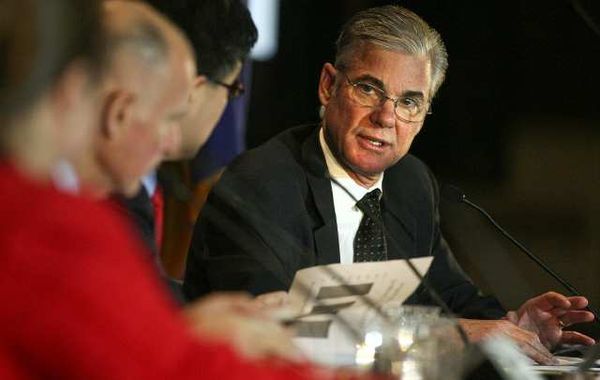California Schools Suffer from Discrepancies in Success Indices

California submitted its waiver to be exempt from provisions of the No Child Left Behind Act, but the state has been unofficially denied. Federal officials informed California Superintendent of Public Instruction Tom Torlakson of the anticipated decision. The California Department of Education (CDE) seeks the NCLB waiver because of its differences with the federal government in determining successful California schools.
Previously, IVN touched on the differences in state and federal measurement of school performance. Through NCLB, the federal government measures schools, districts, and states through what is called Adequate Yearly Performance (AYP). It is calculated through standardized test scores in English language arts and Mathematics. AYP is a binary, "yes" or "no" determination of whether a school is proficient or not.
California uses its own measurement known as the Academic Performance Index (API). API accounts for improvement upon previous scores on standardized tests. As long as schools are reaching their yearly API growth rates, schools are not deemed as failing.
The consequences of not making AYP requirements motivates California to be waived from NCLB. Schools that are continually failing based on federal standards can be subject to a charter conversion or a restructuring of school operations. NCLB also ties teacher and principle performance to test scores, which has been a contentious issue for the California Teachers' Association.
IVN looked into the academic performance reports provided by the California Department of Education (CDE) for the 2011-2012 school year to get a clear picture of the conflict between AYP and API scores. The numbers present a stark contrast in measuring success.
The Los Angeles Unified School District (LAUSD) is the 2nd largest school district in the United States and the largest in California. 168 high schools are incorporated in LAUSD. This includes charter, atypical, performing arts, and traditional high schools as well as preparatory academies.
Under AYP, only nine of the 168 LAUSD high schools are considered proficient and passing. However, 120 of the 168 high schools are meeting their API target growth rates. What this means is that a majority of high schools in LAUSD have improved from their overall performance the year before.
LAUSD as a whole is considered a failing school district in AYP performance. However, the district's API score improved, jumping from 729 to 745; its growth target was 740.
It is important to understand the measurement of success behind API because it is the backbone of California's NCLB waiver application. The CDE is upfront about filing an unorthodox application by acknowledging it does not want to comply with federal policies tied to granted waivers. Its press release announcing the waiver application stated:
"California is requesting that the federal government allow the state to use its own accountability system to ensure that all schools improve, rather than the unworkable federal system that has labeled far too many schools as failing. California's request differs from those filed by other states which agree to several additional federally required policies in exchange for an ESEA waiver."
As of now, 33 states have been granted exemption from NCLB provisions. There were 47 applicants, including California.
The California Department of Education fears that continually improving schools that have not yet met federal standards will be forced to change its operations before schools reach their full potential.
No Child Left Behind has been heavily criticized by educators for its reliance on standardized test scores and inflexible provisions. By the same token, California has been criticized for setting its bar too low. Improvement does not happen overnight, but educators and policymakers are not expected to be satisfied by what is still deemed as below average performance. It is reasonable to have high expectations in academics, but it's important to consider the growth of a school over time.




